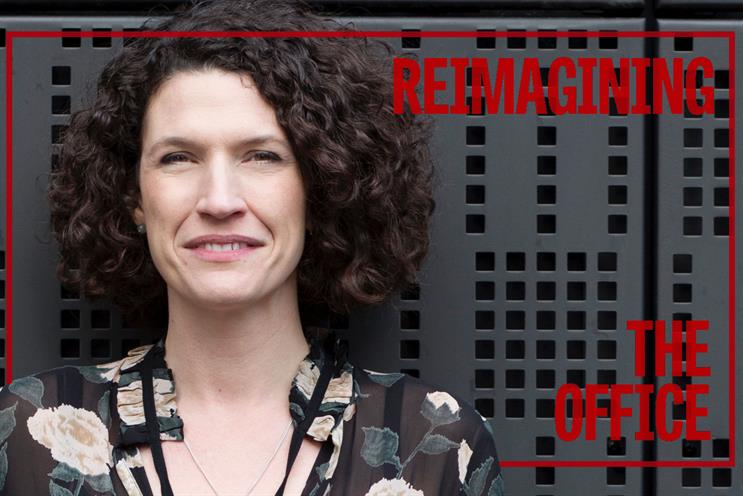We have reached the hokey-cokey stage of returning to the office. Even before the government's change in guidelines, we were neither "all in" or "all out". We are moving into a complex middle ground, where it is easy to get tangled up and trip over our own feet. It is more conventionally called "hybrid working".
As Dame Cilla Snowball recently said in this series, in reimagining the office we must "build back better". And this means that hybrid working, that fine hokey-cokey balance, will be the future for most businesses, including TBWA\London. This means a big rethink.
Many businesses are asking "when" they go back (three days, core hours, not till 2021) or "who" they go back with (socially distanced, in A and B teams). But to try to reimagine the future of the office, we want to start asking "why". Why would people want to go to an office and why would they work elsewhere?
To ask people to leave the comfort and safety of home and invest the time and expense in travelling to work (more than 50% of TBWA employees travel one hour each way), there needs to be a clear purpose for going in. So, instead of rushing to announce plans, we are running a series of sessions with TBWA talent to explore with them the "why" of going back in and design our return accordingly.
Some interesting whys are starting to emerge.
Why is there not enough thinking time?
Our creatives identified that working from home helped them do deep concentration and "flow" work. In fact, most disciplines realised that a quiet and interruption-free place to work makes them really productive (this article would never have got written at my agency desk!). So any future working pattern and set-up will need to accommodate this.
On the flip side, for some people, working from home can also fail to provide the right environment if they have the distraction of kids, noisy neighbours or flatmates. So creating a quiet working space in our future office where people can do deep work is going on the list.
Why does a team need to be together?
Any creative process will have its fraught moments and challenging conversations. But how do we ensure a team has enough social capital before any crisis arises (without the need to hang around a watercooler for 365 days beforehand)?
It seems the beginning is a good place to start – project and pitch kick-offs, pre-prods before productions or any workstream where a team takes on a new formation. Running all kick-offs in person can help ensure everyone is on board, in-sync and, most importantly, that they trust and respect each other before the work begins.
Why is a building important for culture?
"Culture" in agencies can be written off as free coffee and bean bags. But as Harvard Business School professor Frances Frei puts it, culture is "what guides behaviour when management aren't in the room". Culture sets the standard for good work, for how we treat each other, for what kind and fair behaviour looks like, and how we embrace diversity, inclusion, belonging and much more.
Moving forward, we may find some people or roles may work partly or largely from home. But to ensure we all have the same standards of behaviour, we will explore some minimum time in the office. Coming together for key "culture moments" – to celebrate success, set a vision, have inductions or to just rub shoulders with each other. In a socially distanced way, of course.
Why is doing nothing important?
One of the biggest surprises is that the creatives miss the office more than other disciplines do, as they value the casual interactions. Non-work conversations provide random stimulus that unlocks an idea when they next start to focus on a brief. Being back in the office and having a chinwag in the kitchen does the trick.
But what if it doesn't make sense to commute an hour to have a quick chat about Love Island? That's why we're building a virtual TBWA office where creatives will have virtual desks, so they can see who else is in and fancies a chat.
Want to pop by someone's desk and talk about Molly-Mae, without having to book a video call slot? We will soon be able to do just that in the virtual world, thanks to the School of Communication Arts, which has opened up its virtual campus technology to agency sponsors like us to build our own virtual offices within (the great by-product being that our campus donation helps fund scholarships at the school for young, upcoming talent).
So, if you're being kept awake trying to figure out what the future of work and the office is, perhaps you just need to start asking each other "why". Why might people go back in an intentional and purposeful way? Once we know the "why", we can then redesign our workspace to support the kinds of interactions that cannot happen remotely. Collaboration areas, a library, a kitchen for chatting about Love Island and way better wi-fi and AC than home. Makes you wonder if we need desks at all?
Sara Tate is chief executive of TBWA\London


